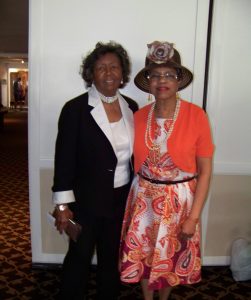
Today is National Day of Prayer (NDOP).
It’s an annual day of observance held on the first Thursday of May, designated by the United States Congress, when people are asked “to turn to God in prayer and meditation.”
Each year since its inception, the president in office has signed a proclamation,encouraging all Americans to pray on this day. The modern law formalizing its annual observance was enacted in 1952.There had been at least two single-day national days of prayer in U.S. history before the day was made an official annual day.
Prior to the nation’s founding, the Continental Congress issued a proclamation recommending “a day of public humiliation, fasting, and prayer” be observed on July 20, 1775.”intreat that a present evil may be removed, deserved punishment for our Sins and Ingratitude, to unitedly implore the Protection of Heaven; Success to our Arms and the Arms of our Ally.
The Commander in Chief enjoins a religious observance of said day and directs the Chaplains to prepare discourses proper for the occasion; strictly forbidding all recreations and unnecessary labor.” George Washington, First President of the United States.
During the Quasi-War with France, President John Adams declared May 9, 1798 as “a day of solemn humility, fasting, and prayer,” during which citizens of all faiths were asked to pray “that our country may be protected from all the dangers which threaten it.”
On March 30, 1863, President Abraham Lincoln issued a proclamation expressing the idea “that the awful calamity of civil war, which now desolates the land, may be but a punishment, inflicted upon us, for our presumptuous sins,” and designated the day of April 30, 1863 as a day of “national humiliation, fasting and prayer” in the hope that God would respond by restoring “our now divided and suffering Country, to its former happy condition of unity and peace.”
He went on to say, “it is the duty of nations as well as of men, to own their dependence upon the overruling power of God, to confess their sins and transgressions, in humble sorrow, yet with assured hope that genuine repentance will lead to mercy and pardon; and to recognize the sublime truth, announced in the Holy Scriptures and proven by all history, that those nations only are blessed whose God is the Lord.”
In his 1983 declaration, Ronald Reagan said, “From General Washington’s struggle at Valley Forge to the present, this Nation has fervently sought and received divine guidance as it pursued the course of history. This occasion provides our Nation with an opportunity to further recognize the source of our blessings, and to seek His help for the challenges we face today and in the future.”
In 1988, the law was amended so that the National Day of Prayer would be held on the first Thursday of May. Two stated intentions of the National Day of Prayer were that it would be a day when adherents of all great religions could unite in prayer and that it may one day bring renewed respect for God to all the peoples of the world.
Presidents Ronald Reagan and George H. W. Bush each hosted special events for the day only once during their administrations. President Bill Clinton did not hold any such events during his time in office.George W. Bush held events on the National Day of Prayer in each year of his presidency; and President Barack Obama did not hold a formal event for the NDOP on May 7, 2009.





Comments are closed.